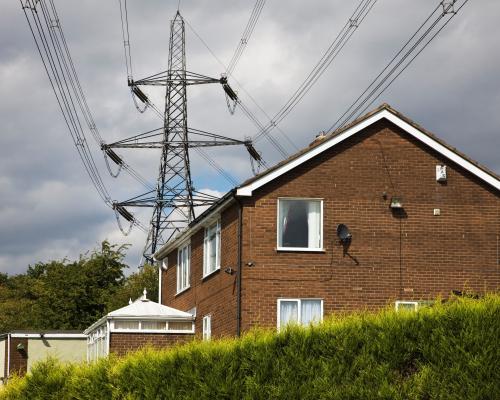
The government is pushing head with a plan to offer those who live near new electricity pylons a discount of £2,500 from their energy bills over the next 10 years to ease the backlash against its clean power plans.
Thousands of households within half a kilometre of new or upgraded electricity infrastructure could each receive up to £250 off their annual energy bill from next year to help speed up the rollout of infrastructure critical to the government’s targets.
Under the plan, local people could receive a £125 discount every six months as the UK prepares to build twice as much new power grid infrastructure over the next five years as it has built in the past decade.
New overhead power lines, pylons and substations are viewed as critical to Labour’s election promise to double Britain’s onshore wind, triple its solar farms and quadruple its offshore wind capacity by the end of the decade.
The rise in electricity investment is expected to help the government meet its goal of creating a zero carbon electricity system by 2030, or five years earlier than the previous Tory government’s clean power target.
The plans have provoked outrage from communities in areas of the country that are expected to host the new infrastructure, which will include overhead lines and pylons along the east coast of England to carry power generated from offshore windfarms in the North Sea.
The opposition has been seized upon by Reform UK, which has promised to use “all our local powers” to prevent the construction of a new overhead electricity line in Lincolnshire.
The government said the payouts would help to put communities “at the heart of a cleaner, more affordable, homegrown energy system”.
The minister for energy consumers Miatta Fahnbulleh said: “That is why we are teaming up with communities hosting new pylons to ensure they receive direct, tangible benefits. We are on the side of those who want Britain to get back to what it does best: building for the future, driving innovation and putting communities first.”
The government set out its plan to address the resistance to its infrastructure agenda alongside new rules to ease another source of opposition to its clean power plans: smart meter installations.
The regulations, which will come into effect from next year, will help protect households from bungled installations and faulty devices by imposing extra obligations for energy suppliers and improving compensation for long installation and repair wait times.
The £20bn roll out of smart meters has been dogged by delay due to scepticism over their benefits, and the perception that they are likely to be time-consuming to install and give false readings once in use.
About three-quarters of homes have a smart meter despite the original aim for all households to have one by 2019. The target was watered down to suggest that all homes should be offered a smart meter by 2020, but this was later pushed back to the end of 2025.
Charlotte Friel, a director at Ofgem, said the new rules would set “clear expectations of suppliers, incentivising them to boost smart meter standards and protecting consumers from poor service if things go wrong”.
She added: “This is only the beginning – with automatic compensation, faster fixes and improved installation standards well on the way, getting a smart meter will be quicker and easier than ever.”
Martin Lewis, the founder of MoneySavingExpert.com, said: “Far too many smart meters, likely one in five, don’t work as they should – a problem not just for all the homes with broken ones, but for the smart meter rollout. With so many dissatisfied customers, word of mouth is bad, so people tell their friends and neighbours not to get one.
“We need to shift firms’ focus from just installing smart meters to promptly fixing those that are broken – not just meters that go into dumb mode, but crucially all elements, including in-home displays that stop working. That’s the aim of this plan, and while it’s taking a softer approach than we proposed, it is an improvement and we’ll be monitoring to see if it delivers.”






